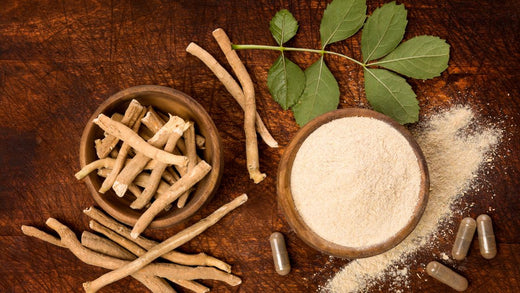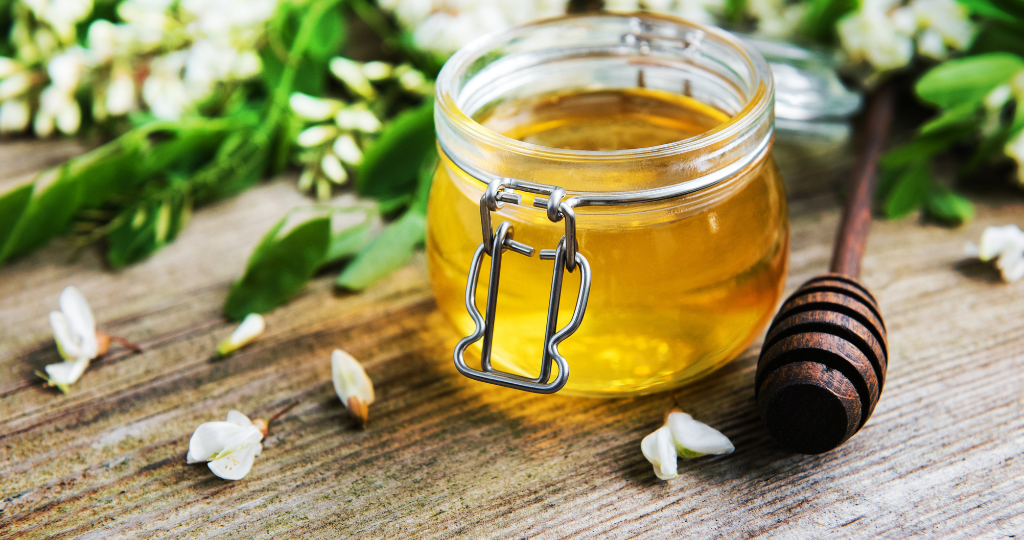
KSM-66 Ashwagandha vs Ashwagandha: What’s the Difference?
AI Summary
KSM-66 and Ashwagandha originate from the same plant but differ in potency and extraction. KSM-66 is a patented root extract with higher bioavailability and better absorption. It's ideal for stress relief, improved cognition, and physical performance. Traditional Ashwagandha uses whole-plant extracts and is more affordable. Choosing between them depends on personal health goals, budget, and preferred effectiveness.
KSM-66 and Ashwagandha are herbal supplements that come from the same plant. KSM-66 is an extract from the root of the Ashwagandha plant (Withania somnifera) that has been studied for potential health benefits. For millennia, Ayurvedic medicine has employed Ashwagandha, a traditional medicinal plant. It is thought to provide a variety of health advantages, including stress and anxiety relief, improved cognitive function, and enhanced physical performance.
Here are more details on KSM-66 Ashwagandha vs Ashwagandha.
What Makes Ashwagandha & KSM 66 Different?

The difference between Ashwagandha KSM-66 and standard Ashwagandha is that traditional Ashwagandha contains extracts from both the leaf and root of the Ashwagandha plant, whereas KSM-66 takes a conventional approach and contains just root extract.
Here's a table highlighting the detailed differences between KSM-66 and regular Ashwagandha:
Key Difference Between KSM-66 and Ashwagandha
|
Feature |
KSM-66 Ashwagandha |
Regular Ashwagandha |
|
Extract Type |
Root extract |
Whole root powder or extract |
|
Extraction Process |
Proprietary green chemistry process |
Traditional extraction methods |
|
Bioavailability |
Higher bioavailability |
Lower bioavailability |
|
Absorption |
Better absorption due to increased solubility |
Lower absorption |
|
Consistency |
Consistent potency and composition |
Batch-to-batch variation |
|
Patented |
Patented and trademarked |
Not patented |
|
Cost |
Generally, more expensive |
Generally, less expensive |
|
Applications |
Used in supplements, nutraceuticals, and pharmaceuticals |
Used in traditional Ayurvedic formulations |
Overview of KSM 66 Ashwagandha
Ashwagandha KSM-66 is an ancient Indian plant that originated in Ayurveda and dates back to 6000 BC. This plant benefits in treating various ailments, including insomnia, anxiety, and obesity, as well as strengthening immunity, increasing muscular strength, and enhancing sexual health. Nowadays, individuals consume and receive the benefits of Ashwagandha in many forms.
This potent herb is available in several varieties, including shoden, KSM-66, and sensoril, with KSM-66 being the most refined version of Ashwagandha.
KSM-66 Ashwagandha is a highly concentrated derivative of the Ashwagandha plant's roots. Because this purest form of Ashwagandha is more effective than other standardised formulations, there are a few things to consider before beginning to use it such as:
- Use the indicated dosage on the product label or consult a healthcare professional.
- Experts recommend taking KSM-66 Ashwagandha in the morning or early afternoon to prevent disrupting sleep owing to its energising effects.
- For the best benefits, use KSM-66 Ashwagandha consistently over time.
- Ashwagandha may interact with some drugs, including immunosuppressants, thyroid medications, sedatives, and diabetic medications.
- Look for trustworthy products that employ the trademarked KSM-66 Ashwagandha extract and adhere to acceptable production processes.
Overview of Normal Ashwagandha
Ashwagandha is a tiny evergreen plant native to regions of India, the Middle East, and Africa. Its unique name derives from the way it smells: Ashwagandha roots smell like horses, with 'ashva' meaning 'horse' and 'gandha' meaning 'smelling like' in Sanskrit. The entire plant is picked, dried, and processed into Ashwagandha powder, then marketed as supplements. For thousands of years, individuals who practise Ayurvedic medicine have regarded the Ashwagandha plant as one of the most potent plants. Typically, when people mention Ashwagandha, they mean the extract.
Health Benefits of Ashwagandha
Ashwagandha has significant characteristics that can assist in boosting general health, preventing illness, and managing current symptoms. It has also been demonstrated to be effective as an adjuvant therapy for medical treatment in traditional healthcare. Here are some of the most notable health advantages of Ashwagandha.
- Relieves stress & anxiety - Ashwagandha is one of the most effective natural adaptogens. These are substances that improve the body's response to stress, anxiety, and exhaustion while also improving general well-being.
- Blood sugar regulation - Studies indicate that Ashwagandha pills can regulate blood sugar levels. This is assumed to be due to the fact that blood sugar levels are regulated by a hormone called insulin, and Ashwagandha has been demonstrated to improve hormonal balance.
- Hormonal balance - Ashwagandha has been demonstrated to help regulate hormonal levels throughout the body. This can affect anything from sex hormones and sexual performance to thyroid health and cortisol levels, all of which contribute to stress. As a result, Ashwagandha is especially beneficial to women as they progress through their lives.
- Cognitive Function - Studies indicate that Ashwagandha supplementation improves cognitive function, including attention span, memory, processing speed, and reaction speeds. This is encouraging evidence for Ashwagandha's effects on attention and memory in everyday life and over time.
- Enhances strength & endurance - Certain studies have revealed that Ashwagandha administration can increase exercise performance by increasing strength, muscular growth, stamina, and endurance. Ashwagandha might be an effective natural vitamin for getting the most out of your workout.
- May help to fight disease - Ashwagandha has an active component of Withaferin A (WFA), which has been demonstrated to support a variety of human ailments. It is believed that Ashwagandha's antimicrobial, antibacterial, and cytotoxic properties might make it a helpful adjuvant therapy in conjunction with medicinal therapies.
KSM 66 vs Normal Ashwagandha: Which One is Better?

It is difficult to tell whether KSM-66 is "better" than Ashwagandha because it depends on each individual's particular health demands and preferences. In its natural form, Ashwagandha has been used in traditional medicine for generations and is being explored for possible health benefits.
Some people may prefer KSM-66 over Ashwagandha powder since it is a high-concentration extract that is supposed to include the entire spectrum of the herb's ingredients in capsule form. Ashwagandha powder is bitter to consume. If we put its powder into capsules, the dose will be ineffective.
However, some people may choose to utilise the whole herb, Ashwagandha, in powdered form because it is thought to have a more balanced impact on the body and be kinder than extracts, as previously described.
Conclusion
Even as they both come from the same plant, KSM-66 and regular Ashwagandha are quite different due to how they are extracted, standardised, and their bioavailability. KSM-66 is a patented root extract that has a high absorption rate. It's been thoroughly studied, and it has been shown to be effective in managing stress levels in areas like cognitive abilities and athletic performance.
However, this better quality and uniformity make it more costly than the usual Ashwagandha supplement or powder. The decision to use KSM-66 over ordinary Ashwagandha will ultimately rely on personal requirements, budget and the desired level of strength and effectiveness. If a person wants maximum benefits, they might invest in KSM-66, but regular Ashwagandha could be an economical option for general well-being.
FAQs
1. Is KSM-66 safe to consume?
Yes, KSM-66 has been extensively studied and is considered safe for human consumption when taken as directed.
2. What is the recommended dosage of KSM-66?
The typical recommended dosage of KSM-66 is 300-600 mg daily, depending on the specific product and intended use.
3. Can KSM-66 be taken long-term?
Yes, KSM-66 is generally considered safe for long-term use. Still, it's always best to consult with a healthcare professional, especially if you have any underlying medical conditions or are taking medications.
4. How does Ashwagandha work?
Ashwagandha contains several bioactive compounds, including withanolides, which are believed to be responsible for its therapeutic effects. These compounds are thought to help regulate the body's stress response, support healthy cortisol levels, and promote overall balance and resilience.
5. When is the best time to take the organic Ashwagandha?
The Ashwagandha can be taken at any time during the day. If you want to use it to support better sleep, you may try taking a dose before bedtime. Otherwise, it's up to your personal needs and preferences.








Leave a comment
This site is protected by hCaptcha and the hCaptcha Privacy Policy and Terms of Service apply.